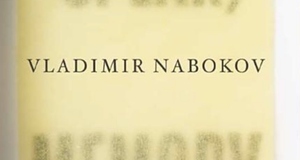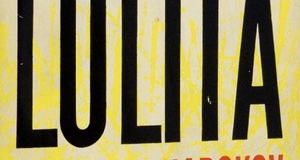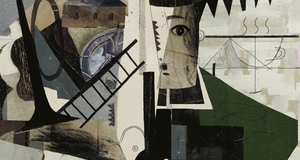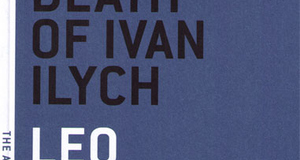The 'Versipel' Charles Kinbote in Vladimir Nabokov's Pale Fire
By
2019, Vol. 11 No. 01 | pg. 1/1
KEYWORDS:
Pale Fire by Vladimir Nabokov is a masterpiece of literature that seems to transform into a remarkably personal experience for anyone who approaches the text. The book reads in many ways like a game full of mysteries and innuendos and has in its postmodern approach no discernible rules. One can begin as usual, or dive into the index or immerse themselves in the cantos first. Our expectations of what text should do and how someone should act can become shattered by this book that refuses to behave. Almost at once one has this queer feeling that they are a witness to the manipulations of Charles Kinbote in his reclamation of the story of John Shade in life and death. Kinbote having dubious intent in his interpretation as the reader somehow comes to feel more uneasy in the opinions they develop from one page to the next. The ground is not stable in the funhouse reflections of Pale Fire. It is easy to become obsessed with Charles Kinbote’s words and the paratext contained within the poem of four cantos of 999 lines written by the character of John Shade (one can argue that it is the reverse, many do). Nabokov successfully crafted a masterpiece that has no comparison, but did he do it for the reader or himself? To understand the richness of the book, and to touch the inner psyche of Charles Kinbote one must be as fearless as Kinbote in his delusional unpacking of the poem. Fine attunement of the reader to the details is further encouraged in the understanding of the obvious psychological issues of Kinbote himself. The book takes on an almost game-like aspect as the eye opens in an analytical view of the inference of his character. The world is unkind to those who are different. We see this as Charles Kinbote uses personification, objects, and emotion to navigate a world that feels antithetical. His madness and assumed narcissism are the tools he chooses to adapt to his world. The multiplicity of his life is his attempt to unify his whole person. He is a man who lives in delusion and paranoia due to the shattered pieces of his internal self, yet it is entirely debatable if we ever honestly get the actual reason why. The cause having to rest on one's idea on just which character he indeed is, keeping in mind there are many to choose. The ultimate puppet master of the entire work, Kinbote leads the reader unknowingly in the way he wants the text interpreted.Some may argue this last point yet sit in a room of others who have shared the reading experience and noticed the argument on truth and reality. The work challenges truth value in the questioning the commentator and writer of the poem, as much as the fantastical commentator Kinbote is doing the same of the text. Nabokov the gamemaster spun a web so expertly that the reader finds themselves behaving in delusional ways in their psyche while they read much like Kinbote. The characters like the readers hunting for the key of ultimate truth. One can also wonder about the role of the author himself, Vladimir Nabokov in some ways so absent and other instances so very present on the page. Is he working out his feelings in the character of Kinbote to deal with his emotions concerning his brother Sergey who was a gay man? It is not only his brother’s sexuality that was problematic for Nabokov but also his brother’s death in a Nazi concentration camp (Sergey died just four months before liberation) both were traumatic to the author in their way. Nabokov was not close to his younger brother, and in some ways, his younger brother remained an enigma to him leading those who investigate to wonder if he was trying to understand him in his later writings. Steven Belletto writes,
While Sergey remains almost invisible in his brother's life, Kinbote is the opposite in the pages of Pale Fire.To begin to understand this character of Kinbote, the name itself stands out dressed in symbolism. Kinbote, a surname, in the book is also the word for regicide. He assumes many names throughout such as Charles Xavier and the Beloved, his hidden identity. In the note, concerning line 894 he is asked by another scholar if his name is an anagram of Botkin. Within the index, the name Botkin is given recognition like a skull found in an attic, both surprising and unexpected. The name is tied to a Russian-American scholar, hinting at the possibility of a former identity. Kinbote writes in the index:
Since the name does seem to be an anagram, Botkin being more like bodkin as in Hamlet’s mention of the bare bodkin adds an element of reflection to the character of Kinbote:
These curious parallels draw even the light reader to intriguing themes, those being that of suicide and madness, perhaps even murder. One must wonder at the shift from king killer to that of suicide ideation. For sure the dismissing tone taken by Kinbote over the passages of the suicide of Shade’s daughter is apparently an avoidance of the subject of suicide that is often made by those who have tried. In this, we can draw more parallels to the character of Kinbote to that of Hamlet in the theme of regicide, these cutting themes contained in both works. Kinbote’s homosexuality during this era would have demanded a double life. An interesting parallel could be drawn here between Kinbote and Nabokov's brother Sergey. Both were exiles from the regular fringe of society being gay men. Sergy was arrested with his lover Hermann Thieme on July 26, 1941.Dieter E.Zimmer writes:
Later Sergey is released and is arrested again for political crimes thereby sealing his doom in the Neuengamme concentration camp. If Kinbote is credible, then he is a political exile, the displaced King Charles Xavier the Beloved. His guilt, of course, being the only caring shepherd of his people and never able to return to free his people. His beloved country Zembla taken over by the Shadows sending him on a thrilling journey to implied freedom and eventually to New Wye, ever on the watch for the assassin Jakob Gradus, always afraid of exposure. He is not genuinely free, having to live a double life and a life of exile. It becomes necessary for a moment to also tie the communist fears of America at the time to the 'homosexual' deviant, in many ways both gay persons and the communist had to hide like other marginalized groups throughout American history. Thisfear was also true for Nabokov's brother Sergey who hid but not well enough in the end and died for seemingly political and sexually deviant reasons. The U.S. ‘lavender scare’ was a genuine witch hunt complete with mass firings of gay people in the 1950s from the United States government. It was much like the anti-communist campaign known as McCarthyism and the Second Red Scare. A government document of the time had this to say about the gay population:
This fear that was very real during the time of Nabokov’s writing directly ties into the dual nature of Kinbote and his detachment of self and embracing the narrative of the king. In the story he creates within his head there was once the perfect place for men like him, where he was King, and peace prevailed. When we find Kinbote none of this is the case, presently he is outside of society unable to live his truth, so he invents one. Or does he? When reality becomes shattered, and one faces exile in every facet of life, sexual, political, economic, and in a foreign land, what then will the mind do? Will this reality write Pale Fire the poem or Pale Fire the Book? Is John Shade’s questioning of the afterlife compatible with Kinbote’s perception of life?
It seems therefore trivial to argue the particulars of controversy over polyvocality versus univocality in questions of who narrates Shade or Kinbote as most readers minds are made up depending on the approach to the novel. To fully appreciate intricacies of the text, the symbols and themes must be meditated upon with careful thought. The fractured mind of Charles Kinbote is both unreliable and brilliant, much like the reader who also wades through the multifaceted truths and falsehoods. Through his univocality, he gains the upper hand and directs all other voices present in the book. Another way to express this is self-propaganda. Cary McWilliams describes this as,
If one is holding idiosyncratic beliefs that are contradicted by reality or rational argument, this leads to the considerationthe madness of the holder of the particular belief. Kinbote time and again predicates the truth of his narrative yet is time and again just enough over the mark or blatantly obtuse in his rendering to cast a shadow over his recollection of events. Nabokov in an interview for the BBC had this to say; “I hate on first sight: the earnest case histories of minority groups, the sorrow of homosexuals, the anti-American Sovietnam sermon…” (Nabokov p.116) The distaste influenced his relationship with his brother and in Pale Fire directly influencing the character of Kinbote. It is within the character of Kinbote that we also see beyond the true madness to the oft-ignored problem of gender and sexuality that has not changed so much even now. Though he hides it somewhat, Kinbote is upset by the seeming erasure of his sexuality and feeling in Shade’s poem. He alludes to it many times in the forward and commentary rewriting his history:
He knew his sexuality was suspected, yet it seems that in having to live in the shadows of exile, almost as a half man, he desired for his secret to come out. Nabokov perhaps was drawing on an element in his past contained in his part in outing his brother as a gay. His brother had written about it in a journal and Nabokov finding the text reported it to his teacher and parents causing a permanent rift between himself and his brother. In some ways perhaps, Nabokov was exploring this past event further in his formulation of Kinbote and Charles the Beloved. Charles until he is imprisoned able to live free in his alternative sexuality, while Kinbote the intellectual in exile, living in hiding, homeless and friendless better reflected the character of Sergey, his brother. It may be plausible to say that in some ways, especially in looking at a fractured mind, that Kinbote in some ways could be considered a hero. If one took the whole of the book and saw each element, each character as a hallucination of a fractured mind, then the book becomes smooth as silk in understanding. Hallucinations and delusions can take the form of visual, tactile, and auditory, and when combined create an entirely visible entity or malleable personality to the one with the fractured mind. The illusions can be as real as any other person and have distinct personalities, some friendly as in the character of John Shade and others dangerous as in Gradus. If one considers that he is writing in a supposed motel room, unprofessionally referencing books he does not have, without guidance or help from his colleagues, it could be argued that perhaps he is in an institution for the mentally ill. Considering this case of madness, does it seem odd to suggest that he may be a hero in circumstances he has very little control? The very struggle with the fractured pieces of emotions and compartmentalization of various slices of the psyche often show a fight on the part of the sufferer for sanity. J.M. Connelly wrote:
Taken in this view Kinbote might be something else altogether rather than the narcissistic commentator. Through the mental illness lens rather than focusing on self, he seems to be the exploding self (ego) into so many shards of glass. He would be the academic in exile in as much as he is Charles the Beloved, he could equally be Shade, Hazel, and even Gradus. He writes in the commentary, “Lines 213-214: A syllogism, this may please a boy. Later in life, we learn that we are those others” (Nabokov 222-223) Could this be the key to the work that Nabokov left us to unlock all the mysteries? In returning to the index and its mention of the “bot” and “King-Bot” it is interesting to note that Nabokov had an interest in the botfly, in fact, James Ramey wrote in his study of Kinbote that the:
It could be that Kinbote used Shade as the mosquito, but with the index entry slanting more in the anagram towards Nabokov, it could equally true, the author used Kinbote as the carrier of not just the poem but the message of the whole of the book. Kinbote, the infuriating trojan horse, to invade our minds carrying the message to us the readers and eventual commentators. Nabokov once said in an interview that:
In this light are we the solver then? Left to decide the sanity of Kinbote and his intentions? Left to determine if he is in a hotel room or a padded one? One is forced to be a scholar actively reading the text; we look for meaning in every word, presume a value to verses yet never having the comfort that we truly understand. Kinbote’s delusions, on the other hand, give him a surety that we as readers never have. Even in the text while we know that when he first comes across the Shade’s and they race away in the car we have the curious sensation that they are making a getaway; however, we are not sure why at that moment. Kinbote is sure they did not see him even when the signals are relatively clear. Referring to the flybot aspect, Kinbote is the carrier of the message unbeknownst to him add to that the element of madness and everything rationalized to his delusional mind. The mad never genuinely knowing they are insane. Steve Bruhm writes about the dualities in the novel that leave the disorienting feeling : “That signifier is sometimes “shadow” modifying both Shade and Gradus-sometimes “shade” itself, sometimes “bodkin” and sometimes it is the entire textual fabric that plays between the worlds of Appalachia, Zembla, utopia, and dystopia, always marked by similarities, yet also marked by differences. By employing the “tongue of the mirror” (Bruhm 303) Sometimes it is Hazel that Kinbote resembles, both rejected by men, thoughts of suicide, exile, alone and removed from the comradery of community. Though marked by physical differences the similarities between them are rather profound. In the world of mental illness, it is not uncommon to see the mental killing of a hallucination in accident, murder or suicide, when its purpose was served. Kinbote makes a striking comparison himself in the commentary to lines 347-348 - "She Twisted words,” where he comments that “ it is also true that Hazel Shade resembled me in certain respects”( Nabokov) Then further in the index he writes that Hazel, “deserves great respect, having preferred the beauty of death to the ugliness of life; domestic ghost, haunted barn” (Nabokov 145). Therefore, the similarities both known and inferred are so close one may wonder if Hazel is Kinbote or the other way around. Within John Shade’s words, we also see duplicity, he points out, “we die every day, oblivion thrives / Not on dry thighbones but on blood-ripe lives” (Nabokov line 519-20). Here we observe a careworn man who has suffered through loss and aging, “ready to become a floweret, / Or a fat fly” (Nabokov line 523-524). Recall the index entry for V. Botkin perhaps a flybot, Botkin King-bot or Kinbote. Matthew Roth and Tiffany DeRewal further expound on this theme writing that:
Roth and De Rewal (2009) further expound on this ideaexplaining that "a versipel ( a pun on “verse’) is a werewolf — literally a “turn-skin,” from the Latin versipellis. John Fiske notes that in the medieval period people believed that “while the werewolf kept his human form, his hair grew inwards; when he wished to become a wolf, he simply turned himself inside out” (Roth, Rewal 2009). Could John Shade in using this choice of wording be clarifying the figure of not only himself but Kinbote as well? This profound idea that one can turn the skin to be something other, perhaps a bolder and more daring self than what they consider themselves to be. Nabokov using the very primal example of werewolf allusion here is remarkable especially as it relates to what we know of Kinbote and the quiet gentleness of John Shade. “What distinguishes us from animals? Being aware of being aware of being. In other words, if I not only know that I am but also know that I know it, then I belong to the human species. All the rest follows—the glory of thought, poetry, a vision of the universe. In that respect, the gap between ape and man is immeasurably greater than the one between amoeba and ape. The difference between an ape's memory and human memory is the difference between an ampersand and the British Museum Library” (Nabokov, Mossman1969). It's important to draw attention to the personhood of Nabokov and the voice of Kinbote as using the same vernacular, vocabulary and inflection of pride and importance. This connection is not lost on the one who draws this comparison in close study, making the deeper context of the relationship between and author and his work even more intriguing. If we consider that Kinbote then is a bit of everyone in the text, are we, not all a bit of Kinbote and therefore a bit of Nabokov? How we read the text influences the conclusion the answer may be looking up from the page, Kinbote alludes to this conclusion by saying:
The beauty of the work then perhaps is in never fully knowing the shape of shadows. ReferencesBruhm, Steven, “Reflecting Narcissus: A Queer Aesthetic, Queer Queer Vladimir,”American Imago, Vol.53, No,4, p303,1996,John Hopkins University Press. Belletto, Steven, “The Zemblan Who Came in from the Cold, or Nabokov’s “Pale Fire’, Chance, and the Cold War.” ELH, Vol.73, No.3 (Fall, 2006), pp 755-780,The John Hopkins University Press. Connolly, J. M., “The Cambridge Companion to Nabokov.” P.35,2005, Cambridge: Cambridge University Press. Excerpts from: “Employment of Homosexuals and Other Sex Perverts in Government.” Interim Report submitted to theCommittee on Expenditures in the Executive Departments by its Subcommittee on Investigations under S. Res. 280 (81st Congress). A Resolution Authorizing the Committee on Expenditures in the Executive Departments to Carry Out Certain Duties. December 15 (legislative day, November 27), 1950, http://www.edb.utexas.edu/faculty/salinas/students/student_sites/Fall2008/6/artifacts.html McWilliams, Carey, “A Mask for Privilege: Anti-Semitism in America,” Boston: Little Brown, 1949.p 243-242 Mossman, James, Vladimir Nabokov, Speaking to James Mossman—Montreux, 9/8/69, https://www.youtube.com/watch?v=UbtvWnvbXTE Nabokov, Vladimir. “Pale Fire.”Vintage Books, 2011-02-16. iBook. Ramey, James,Comparative Literature Studies; 2004, Vol. 41 Issue 2, p189,2004 DeRewal Tiffany, Roth Matthew,” John Shade’s Duplicate Selves: An Alternative Shadean Theory of Pale Fire,”NOJ / НОЖ: Nabokov Online Journal, Vol. III / 2009 http://www.academia.edu/2603693/John_Shades_Duplicate_Selves_An_alternative_Shadean_theory_of_Pale_Fire Shakespeare, “Hamlet, Prince of Denmark,” The Bedford Shakespeare, p955-1230 Mcdonald,2015,Bedford/St. Martin’s. Zimmer Dieter E.,“What Happened to Sergey Nabokov,” October 10, 2015, / Last revision January 2, 2017, http://www.d-e-zimmer.de/PDF/SergeyN.pdf Suggested Reading from Inquiries Journal
Inquiries Journal provides undergraduate and graduate students around the world a platform for the wide dissemination of academic work over a range of core disciplines. Representing the work of students from hundreds of institutions around the globe, Inquiries Journal's large database of academic articles is completely free. Learn more | Blog | Submit Latest in Literature |


















